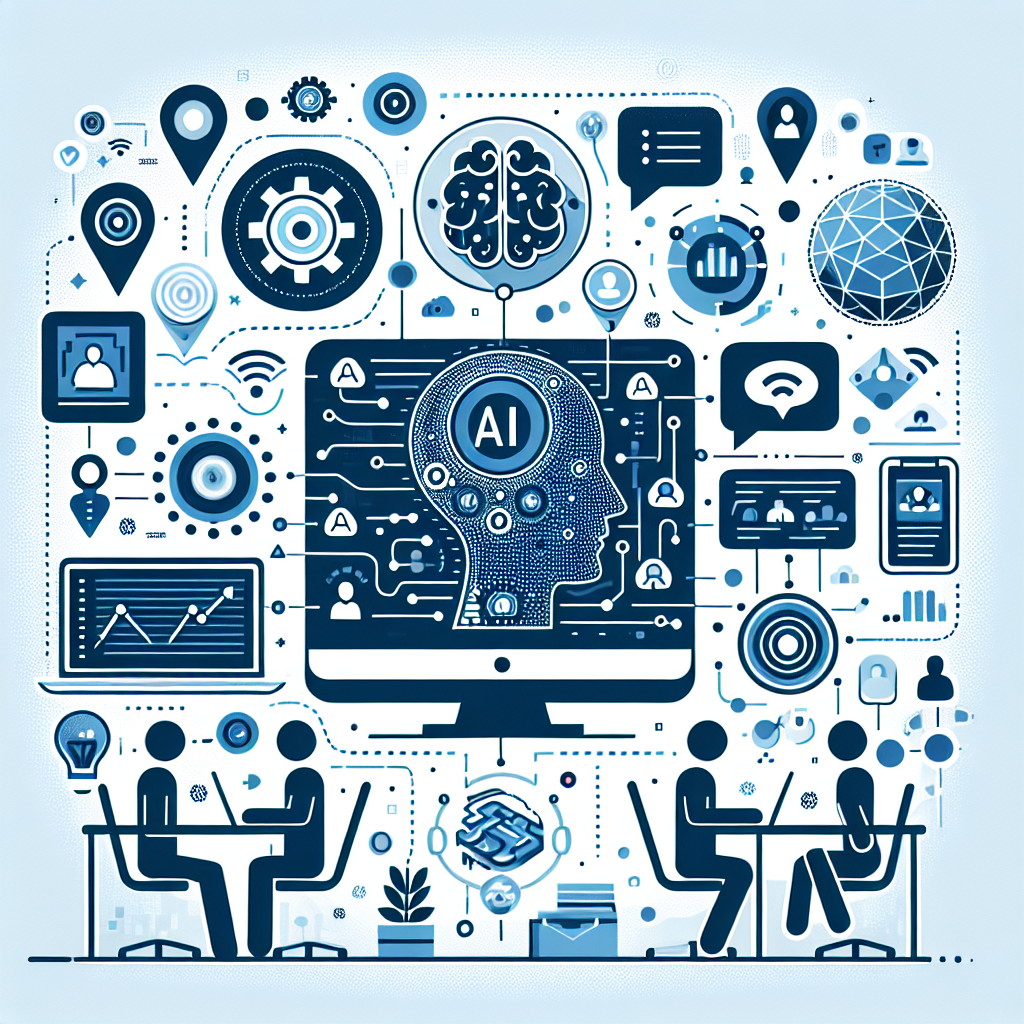The Benefits of Conversational AI in Remote Work and Collaboration
In recent years, the way we work has undergone a significant transformation. The rise of remote work and collaboration tools has made it easier than ever for teams to work together from anywhere in the world. One of the most exciting developments in this space is the use of conversational AI to streamline communication and improve productivity. In this article, we’ll explore the benefits of conversational AI in remote work and collaboration, and how it can help teams work more efficiently and effectively.
What is Conversational AI?
Conversational AI refers to technologies that enable computers to interact with humans in a natural, conversational way. This can include chatbots, virtual assistants, and voice recognition systems that can understand and respond to human language. Conversational AI is increasingly being used in a wide range of industries, from customer service to healthcare, to improve communication and automate repetitive tasks.
Benefits of Conversational AI in Remote Work and Collaboration
1. Improved Communication: One of the biggest challenges of remote work is the lack of face-to-face communication, which can lead to misunderstandings and miscommunications. Conversational AI can help bridge this gap by providing a natural and intuitive way for team members to communicate with each other. Chatbots can facilitate real-time conversations, answer questions, and provide information, making it easier for teams to stay connected and collaborate effectively.
2. Increased Productivity: Conversational AI can automate repetitive tasks and streamline workflows, freeing up time for team members to focus on more important work. For example, virtual assistants can schedule meetings, set reminders, and provide updates on project status, reducing the need for manual data entry and administrative tasks. This can help teams work more efficiently and achieve better results in less time.
3. Personalized Assistance: Conversational AI can provide personalized assistance to team members based on their individual needs and preferences. Virtual assistants can learn from past interactions and tailor their responses to each user, making it easier for team members to find the information they need quickly and easily. This can help improve employee satisfaction and engagement, leading to better collaboration and teamwork.
4. Access to Information: Conversational AI can provide instant access to information and resources, regardless of time or location. Chatbots can quickly search for and retrieve relevant documents, files, and data, making it easier for team members to find the information they need to complete their tasks. This can help teams work more efficiently and make better decisions, leading to improved outcomes for the organization.
5. Enhanced Collaboration: Conversational AI can facilitate collaboration between team members by providing a centralized platform for communication and information sharing. Chatbots can create group chats, manage project tasks, and track progress, making it easier for teams to work together towards a common goal. This can help improve teamwork and foster a sense of community among remote workers, leading to better collaboration and innovation.
FAQs
Q: How can conversational AI help remote teams stay connected?
A: Conversational AI can help remote teams stay connected by providing a natural and intuitive way for team members to communicate with each other. Chatbots can facilitate real-time conversations, answer questions, and provide information, making it easier for teams to stay connected and collaborate effectively.
Q: How can conversational AI improve productivity in remote work?
A: Conversational AI can improve productivity in remote work by automating repetitive tasks and streamlining workflows. Virtual assistants can schedule meetings, set reminders, and provide updates on project status, reducing the need for manual data entry and administrative tasks. This can help teams work more efficiently and achieve better results in less time.
Q: How can conversational AI provide personalized assistance to team members?
A: Conversational AI can provide personalized assistance to team members by tailoring responses to each user based on their individual needs and preferences. Virtual assistants can learn from past interactions and provide customized recommendations, making it easier for team members to find the information they need quickly and easily.
Q: How can conversational AI enhance collaboration between remote teams?
A: Conversational AI can enhance collaboration between remote teams by providing a centralized platform for communication and information sharing. Chatbots can create group chats, manage project tasks, and track progress, making it easier for teams to work together towards a common goal. This can help improve teamwork and foster a sense of community among remote workers.
In conclusion, conversational AI has the potential to revolutionize the way we work and collaborate in a remote environment. By improving communication, increasing productivity, providing personalized assistance, and enhancing collaboration, conversational AI can help teams work more efficiently and effectively, leading to better outcomes for the organization as a whole. As technology continues to evolve, we can expect conversational AI to play an increasingly important role in shaping the future of work and collaboration.

